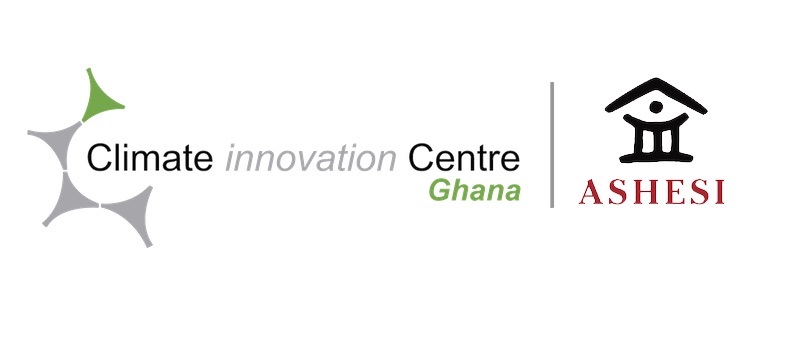Climate change poses unprecedented challenges to humans and the planet, impacting nearly all aspects of lives and livelihoods. These effects are disproportionately felt and experienced in Africa, known to be the most vulnerable continent, partly because lives and livelihoods on the continent depend on highly climate-sensitive sectors such as agriculture, where more than 90 percent of agriculture in Africa is rainfed. In view of this, there is an urgent need for the continent to adapt to the adverse impacts of climate change and mainstream climate action into its broader social and economic development activities. Many African governments have ambitious climate change policies enshrined in policy plans such as the NDCs, as well as in national, regional, and local policies, strategies, and frameworks designed explicitly to address adaptation needs. However, their implementation, effectiveness and sustainability has fallen short, leaving many lives and livelihoods at dire risk of climate effects and impacts.
The goal of climate protection is to promote and protect the lives, livelihoods, and wellbeing of current and future generations. Climate Change is already inflicting immense damage on lives and livelihoods, often to the people with little or no capacity and agency to cope or adapt. Hence, as well as restoring, protecting, and mitigating further damage to the planet and its ecosystems, climate action must be designed with, and in service of humanity. This involves the difficult tasks of balancing climate action with stabilising lives and livelihoods and forging sustainable and resilient social and economic development pathways for current and future generations.
Adaptation, especially locally led adaptation initiatives (LLA), offers many untapped opportunities for climate actions to stabilise lives and livelihoods and to forge sustainable and resilient social and economic development pathways for current and future generations. More specifically, locally led actions are key to addressing the climate crisis, because they target immediate and often overlooked adaptation actions that revive and maintain fragile ecosystems that support basic survival needs such as food and safe drinking water and build momentum for broader national and global climate actions. Moreover, local communities possess unique and contextual knowledge, skills and networks that make them critical stakeholders for climate change action at the local, national, and global levels.
The project focus is on the adaptation components of NDCs and other national and local frameworks and strategies for climate adaptation in three West African Countries: Ghana, Nigeria, and Senegal. The project will rigorously evaluate and analyse the elements, and dimensions of adaptation policies to identify and communicate challenges and opportunities to initiate and sustain appropriate adaptation policies. This project will also probe the implementation gaps to provide a better understanding of the challenges and opportunities to advance climate solutions that are focused on the countries’ priorities and particular needs. More specifically, the project will dive- deep into select adaptation strategies and practices at the local level to assess the needs, challenges, knowledge gaps and opportunities and draw lessons to inform policy makers and implementers of climate actions around adaptation at the local, national, regional and global levels.
The knowledge generated will inform and support African countries ́ efforts to balance climate actions with goals of economic development and job creation and sustainable economic development. Moreover, the knowledge is expected to serve as a necessary orientation to local and international policy makers and partners, in guiding decision making on how to support and implement effective and long- term adaptation processes addressing the twin challenges of climate change and sustainable development in African countries, without undermining or unnecessarily constraining their policy space. Ultimately, our data, policy recommendations and policy advocacy in Africa and abroad will complement current endeavours aimed at improving policy coherence and the integration of climate action, such as adaptation initiatives, with livelihood opportunities like job creation and enabling environments for the creation of value-added goods and services in Africa.
The project has adopted a collaborative approach to setting project goals and developing solutions. We are working closely with local researchers, support institutions, and other partners from policy, academia, and civil society to conduct country- specific analyses and to develop recommendations that are fit for purpose as identified and defined by local actors. The project will also pay particular attention to issues of equity, justice, and inclusion, especially in respect to gender and endeavour to target sectors in need for urgent climate adaptation with potential for broader societal value, beyond economic value.

ENDA Energie is an International Non-governmental Organisation with headquarters in Dakar, Senegal. ENDA’s work focuses on strengthening the visibility and valorisation of knowledge and tools developed at the local level. ENDA Energy aims to provide analysis on energy issues and carve a path for societies to have access to sustainable energy services and effective citizen control over natural resources. Furthermore, the NGO promotes access to sustainable, inclusive, and equitable energy services while supporting development practitioners with the implementation of multilateral environmental agreements, notably on energy and climate change, sustainable land management, gender and energy access.

The Ghana Climate Innovation Center (GCIC) is a national business incubator located in Accra, Ghana. The Centre supports Ghanaian entrepreneurs and new ventures involved in developing profitable solutions to climate change mitigation and adaptation. GCIC’s vision and values are committed to the transition to a prosperous, inclusive low-carbon economy. The Center is affiliated with Ashesi University and its mission is to develop and support an exceptional set of transformational ventures and entrepreneurs who are pioneering adaptive and mitigating solutions for climate change issues in Ghana notably through the School of Sustainable Entrepreneurship, Policy alternatives for a Green Economy (PAGE-GHANA), and STAGE Story Telling.

The Centre for Climate Change and Development (CCCD) is a research think tank based at the Alex-Ekwueme Federal University Ndufu-Alike (AEFUNAI) in Lagos, Nigeria. The Centre focuses on innovative learning, research, and policy guidance in the areas of environmental sustainability, climate change and green development in Nigeria and Africa more broadly. The Center works to bring Nigerian academics, governments, NGOs, and private sector entities together in partnerships to address the nation’s key environmental and developmental challenges. Also, it has an interdisciplinary focus and approach with emphasis on four focal areas: Climate Policy and Justice, The Green Economy and Sustainable Development, Climate Adaptation and Resilience, and Climate Information Services.